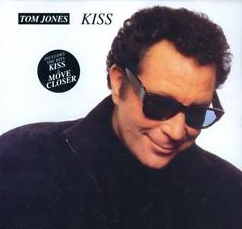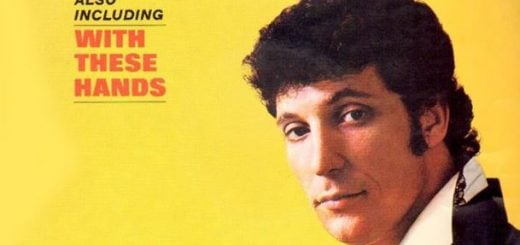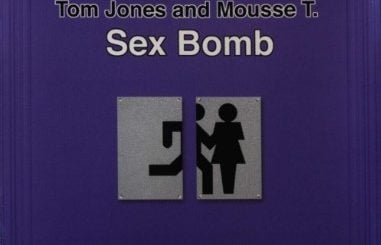Meaning of “Delilah” by Tom Jones
“Delilah” is the title track and lead-off song from the first of three studio albums Tom Jones came out with in 1968. This track was officially released on February 1st of that year, being a product of Decca Records.
That was relatively early in Jones’ recording career, as his discography dates back to 1965. And those earlier goings were also Tom’s musical heyday, and “Delilah” stands as one of his biggest hits.
For example, this track charted in over 20 countries, including Singapore and South Africa, at a time when it wasn’t particularly common for hits to do so. Moreover it proved a chart topper in 10 of those nations and managed to peak at number 15 of the US Hot 100 and number 2 on the UK Singles Chart. Besides that, the song has also been certified silver in Jones’s homeland of the United Kingdom.
THE RUGBY CONTROVERSY
More specifically, Tom Jones was born and raised in a part of the United Kingdom known as Wales. And the reason we’re bringing that up is because in 1999 the Wales national rugby union team defeated that of England’s, in London’s Wembley Stadium at that, during a popular tournament known as the Five Nations Championship.
Tom Jones performed “Delilah” at the onset of that game, setting a tone that inspired Welsh fans and the national team alike. So since then, the song became the unofficial anthem of the Welsh rugby team.
The controversy set in some years down the line – in 2015 and reinforced in 2023 – when the Welsh Rugby Union (WRU) banned its own choirs from singing “Delilah” at games, thus making the song illegal at their events, in a manner of speaking.
That decision of course caused a backlash, with the knighted Tom Jones himself pointing out that the ban “didn’t stop the crowd from singing it” and that they “will keep singing it too”. But in defense of their decision, the WRU has stated that they “condemns domestic violence of any kind”. Simply put, they have more or less concluded that “Delilah” stands as an advocacy of such abuse. And with that in mind, let’s now take a look at the song’s lyrics.
THE LYRICS OF “DELILAH”
As we have already pointed out a couple of times in the past, circa the 1960s it seems that songs about dudes murdering their lovers were sort of a thing in the music industry. Presumably that standard harps back to the early 20th century, i.e. the era of folk songs, as such tunes tended to be descriptive narratives often revolving around interpersonal matters, i.e. a story that you sing. And so it is with the “Delilah”, though there is a considerable amount of emotion behind this piece also.
VERSE 1
The first verse, though not being too wordy, does a sound job of establishing the setting of this song. Unfortunately for the vocalist, that would be him ‘passing by’ his girlfriend’s window in the nighttime.
Said girlfriend is the titular Delilah, and upon doing so, to make the long story short, the vocalist discovers that she, by the looks of things, is bonking another dude.
CHORUS 1
The chorus that follows can be interpreted as implying that even before catching her red-handed, Tom had already concluded that Delilah “was no good for” him. But along the way, he became “lost like a slave that no man could free”. Or put otherwise, he was so smitten that he couldn’t walk away from what he knew in his heart was a toxic partner.
VERSE 2
But upon the second verse commencing, it becomes obvious that this isn’t a simple case of a guy catching his girl cheating and subsequently being heartbroken or what have you. For instance, the vocalist actually proceeds to wait until the “break of day”, “cross the street” from Delilah’s house for her lover to bounce.
He then proceeds to go and knock on her door. Upon answering, Delilah “stood there laughing”. Perhaps the way he interpreted that action was along the lines of her mocking him. In any event, he obviously approached the house with ill intent, i.e. with a “knife in (his) hand”. And as implied he proceeded to use it on Delilah, “and she laughed no more”.
CHORUS 2
So the chorus that comes after the second verse features some lyrical modifications as compared to the first one. And it verifies two notions, in a roundabout way. One is that this wasn’t the first time that Delilah did something like that to the vocalist, i.e. cheated on him. To the contrary, what’s implied is that Tom tolerated such actions until he “just couldn’t take anymore”.
Secondly, it infers that the vocalist did in fact assault Delilah, presumably with that knife, in a way that has attracted outside attention, i.e. the intervention of law enforcement. Or as depicted, after assaulting her, Tom locks the two of them inside her house, likely as a result of fearing what would happen next.
And before “they”, i.e. the police, “come to break down the door”, he is begging for Delilah forgiveness for losing his cool like that.
CONCLUSION
So yes, this is a story that’s highlighted by an act of domestic violence or a crime of passion as some may put it – one that may have even proven fatal – perpetrated by the vocalist against the addressee. But it isn’t such that the lyrics actually condone such an act.
Or let’s conclude this analysis by saying that if anything, the moral of the story revolves around the notion of it not really being a good idea for girls like Delilah to cheat or see more than one guy at once. Or viewed from a different angle, some guys do possess the wherewithal to reach a point where they can unexpectedly snap on an unfaithful lover.
“My, my, my Delilah
Why, why, why Delilah
I could see, that girl was no good for me
But I was lost like a slave that no man could free”
THE COMPOSERS OF “DELILAH”
Originally there were only two credited writers of this song, that being Les Reed (1935-2019) and Barry Mason (1935-2021). And accordingly the pair took home an Ivor Novello award in 1968, in the category of Best Song Musically and Lyrically, for penning this tune.
Later down the line, Sylvan Whittingham, whom Mason went on to marry in 1972, was acknowledged for her contribution to writing “Delilah” also.
And interesting to note is that, by the looks of things, these lyrics proved controversial even prior to the WRU drama. But as for Whittingham, she did not agree with the notion that “Delilah” incites domestic violence.
Furthermore, she explained that the song is actually based on a 1954 movie titled “Carmen Jones”.
However, Barry Mason offered a different backdrop (which was more or less debunked), claiming that the lyrics were inspired by a girl named “Delia” he was smitten with during his mid-teens, who basically proceeded to dump him.
Meanwhile, the producer of this track was regular Tom Jones collaborator Peter Sullivan (1933-2020).









